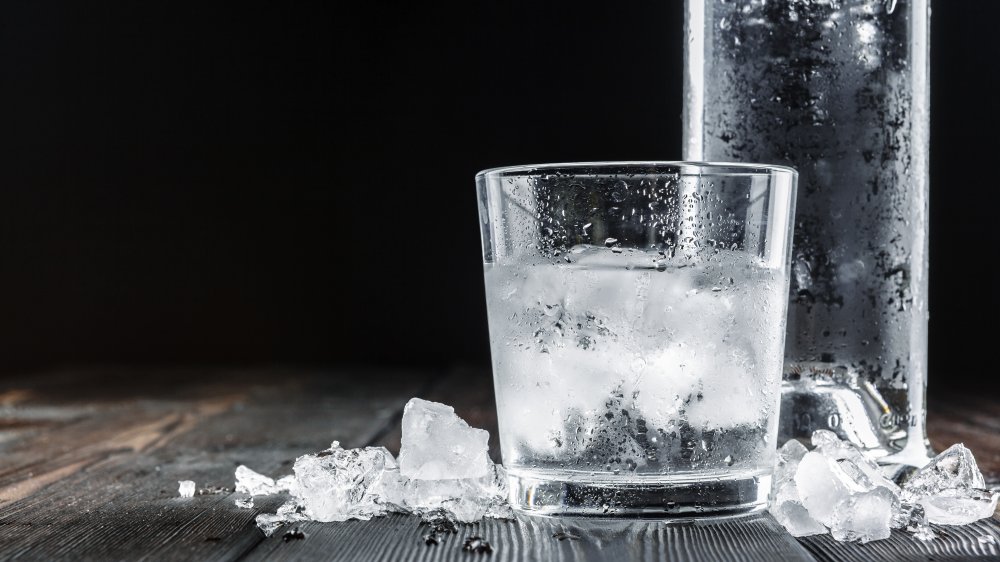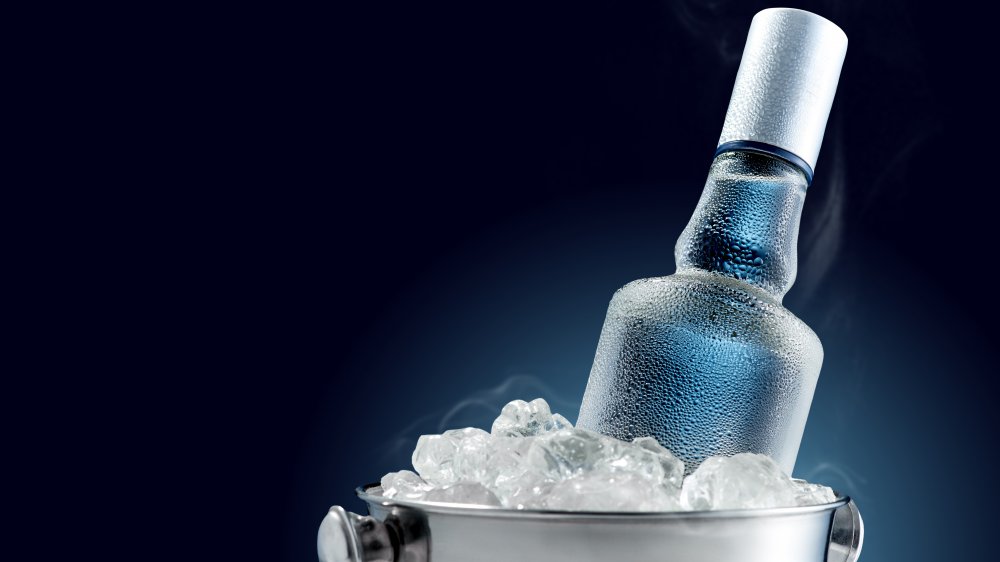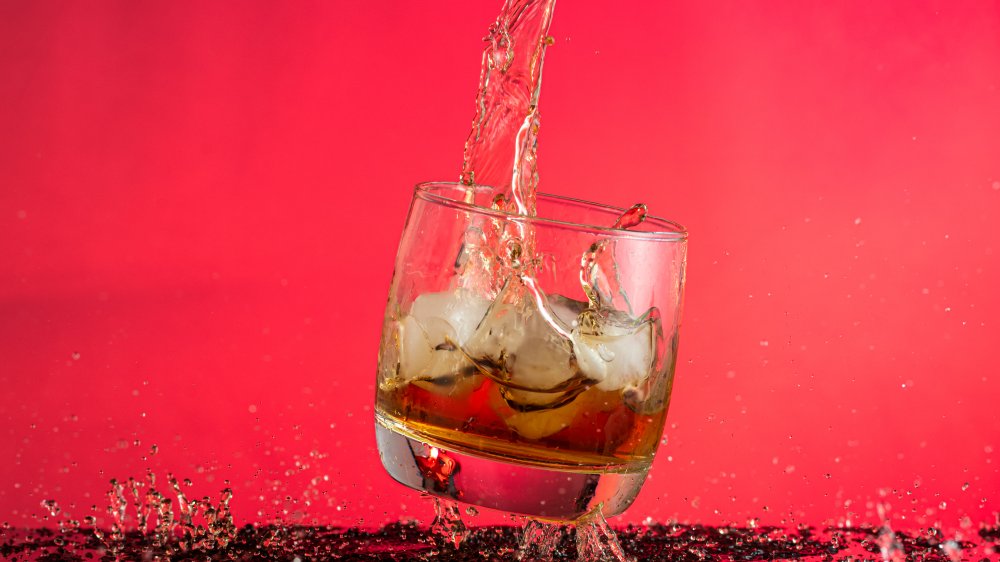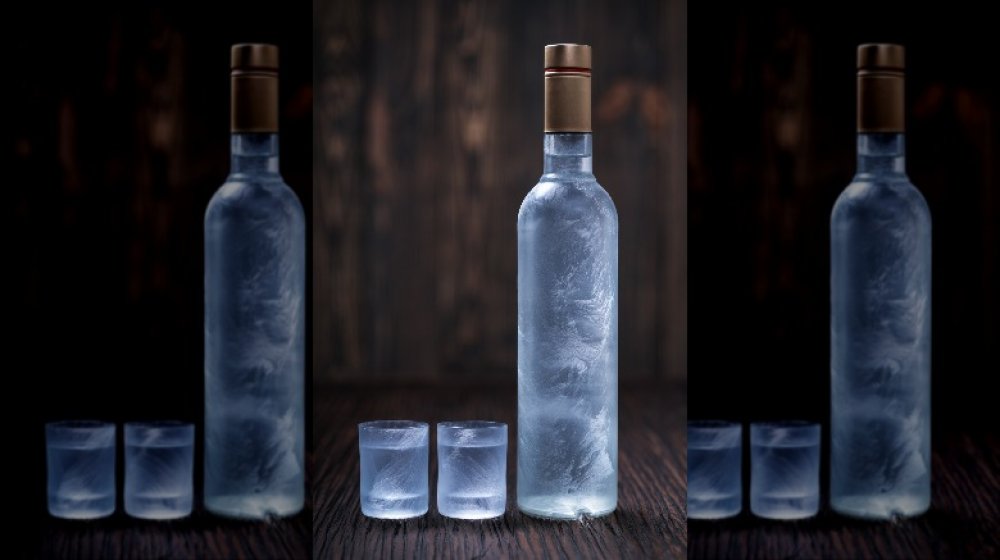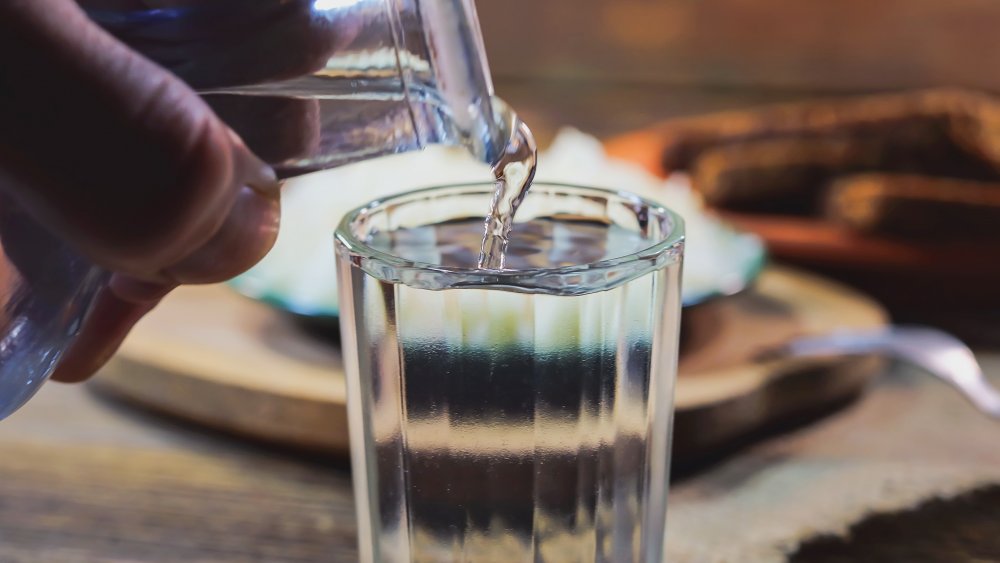Why You Should Never Put Vodka In The Freezer
One of the first things you learned about the freezer as a kid (besides "shut the door, you're letting all the cold air out!") is that it wasn't a good idea to put any kind of beverage in there. At best, you'd have to wait a long while for your frozen block of whatever it was to thaw out so you could drink it, while at worst you'd get a bursting-open can, big mess, and a yelling parent.
When you got older and started buying booze, someone may have let you in on a little grown-up secret — you could stash your booze in the freezer and it wouldn't ever freeze solid. Instead, you could pour yourself an icy-cold shot anytime you wanted.
But now, some bubble-bursting courtesy of Francois Thibault, the creator of Grey Goose vodka (that totally isn't the same as Costco's Kirkland brand) — he broke the news to Business Insider that over-chilling your vodka can mask its delicate flavor.
The science that keeps vodka from freezing
Beer freezes, wine freezes, and of course frozen cocktails — and even boozy popsicles — are a thing. So why doesn't your bottle of vodka turn into one giant 80 proof ice cube right there in your freezer (that is, if you decide to chance wrecking its flavor by doing so)? The key lies in that whole 80 proof thing. As Reader's Digest explains it, since 80 proof translates to around 40 percent alcohol, vodka needs to get to around -16 degrees F before it will freeze, and the average freezer tends to be about 0 degrees. You'll need some kind of super-industrial freezer, or perhaps liquid nitrogen, if you really want a vodka-sicle.
Not all liquors freeze at the same rate or the same temperature, however, since it depends entirely on alcohol content. According to a handy chart supplied by The Spruce Eats, most types of beer and wine, which tend to be below 15 percent alcohol, will freeze solid if left in the freezer too long. Low-proof liqueurs like Irish cream that come in around 20 percent alcohol may get slushy in the freezer, but will not solidify. Any type of booze that is above 32 percent alcohol (or 64 proof) should be okay to store at sub-freezing temperatures for an indefinite period of time.
So why don't we freeze other booze?
Again, it's all about science, according to the wine and liquor experts at VinePair. Alcoholic beverages contain things called volatiles, which are released as these liquors warm up. Vodka, a less complex spirit than most, contains the fewest volatiles, so its flavor will be less affected by the rate at which these are released.
A liquor like whiskey, on the other hand, obtains much of its distinct character from these volatiles. Kevin Liu, Chief Cocktail Maker at The Tin Pan, points out, "[T]he whole point of aging whiskey is to create desirable volatiles." While he admits that freezing whiskey will not actually destroy any of whiskey's volatiles, they're "just harder to detect when you have cold whiskey." Vine Pair's rule of thumb when it comes to determining which liquors definitely should not be frozen: anything barrel-aged is of sufficient complexity that serving it ice-cold would be a big no-no.
Vodka's supposed to have a flavor?
Business Insider claims that a premium vodka such as Grey Goose has "sophisticated aromas and flavors" that you wouldn't want to miss out on by serving it too cold, although this probably only applies if you're drinking the stuff straight up or in a vodka-forward cocktail such as a dry martini. According to Thibault, the optimum temperature for Grey Goose is 0 to 4 degrees Celsius (which translates to 32 to 39 in Fahrenheit).
Coincidentally, this just happens to be the exact temperature of vodka served on the rocks — even Thibault doesn't recommend drinking the stuff at room temperature. Bogue Sound Distillery agrees with their rival vodka maker as to the optimum temperature at which their spirit (the premium Vitrzellen vodka) should be served, but they also suggest that this temperature may be achieved by storing vodka in the refrigerator or by mixing it in a cocktail shaker with ice. This last-named method will be the obvious choice for anyone who's always wanted to be just like James Bond, even if martini purists insist that his direction to serve his vodka martinis "shaken, not stirred" is an abomination.
But what if your vodka's not premium?
Thibault does admit that if you're drinking cheap, low-quality vodka (you barbarian, you!), then you'll probably want it served at sub-zero temps in order to hide any "aggressive, burning notes." Or, you know, you could always just have a vodka soda or something.
Plus, we've got one more hack for making sure than even the cheapest vodka doesn't ruin your cocktail — use a water filtration pitcher to replicate the filtration process that all the pricey brands boast of. To be on the safe side, you should run the vodka through the pitcher a few times (four is recommended), but the filtering should go a long way towards de-harshing your budget booze.
